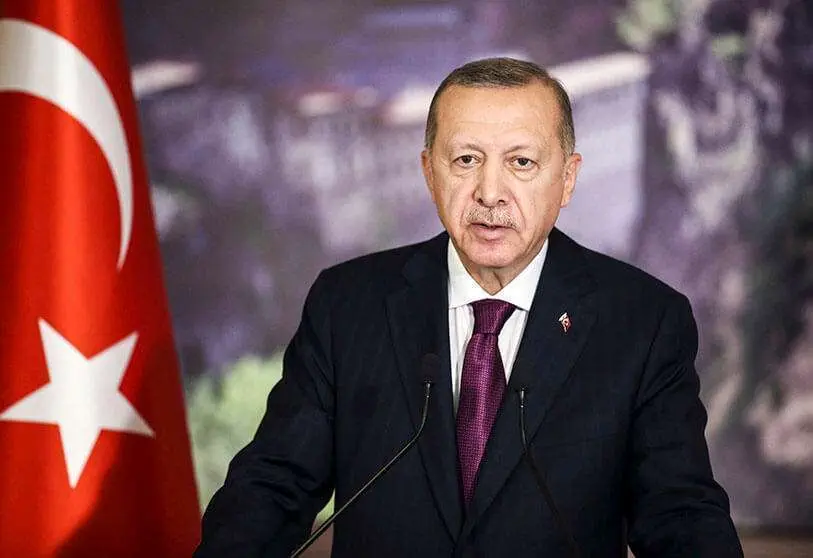The tribulations of a Turkish sorcerer's apprentice

Behind Recep Tayyip Erdogan's decision to return Hagia Sophia to the 'status quo' before 1931 are some elements of the same Kulturkampf pattern used by Bismark in 1871. Like the Iron Chancellor, Erdogan seeks both to unite his people by promoting a certain religious observance, to the detriment of other faiths, and to give religion a diplomatic foothold in his imperialist aspirations, for which the assertive secularism of Kemalism is a hindrance.
It is likely, however, that, as with the Bismark gambit, cultural, economic and technological changes will considerably limit the articulation of state authority along confessional lines. The recent regulation of control of social networks denotes more an attitude of defensive weakness than strength and confidence in the results of the culture war undertaken by Erdogan, and it is highly unlikely that it will become the force of stabilization and internal unification for which the Turkish president has presumably bet.
Naturally, the openness of Hagia Sophia to the Muslim cult has been well received by the Islamic Saadet Partisi and the Nationalist Movement Party, in coalition with Erdogan. However, only one fifth of IYI voters support the revival of Hagia Sophia as a mosque, a figure similar to that expressed by the voters of the People's Republican Party. Particularly onerous is the outright disagreement of the Kurdish political forces, whose religious leaders were not even invited to the opening of the mosque for prayer on 24 July, which is not surprising given the fact that this year marks the centenary of the Treaty of Sèvres, which enshrined the right of the Kurdish people to create the state of Kurdistan, following the implosion of the Ottoman Empire in the First World War.
This discrimination, which overlaps with the extradition to China of Uyghur Muslims who had been granted asylum in Turkey, considerably weakened Erdogan's claim to be a champion of the unifying spirit of Islam and revealed the sophistication of trying to make Hagia Sophia an Islamic shrine, a place that lacked the theological significance and religious value of Jerusalem, Medina and, above all, Mecca. Consequently, with no historical continuity to legitimise the aspirations of the Turkish leadership of the Muslim world - a mosaic that has always been characterised by a multipolarity made up of sultanates such as Zanzibar, the Persian saphavids, the Egyptian Mamluks, the Hashemites, and the Alawites of North Africa - Erdogan cannot escape being forced to construct a new narrative, whose central axis is to damage Western energy interests in the Mediterranean, to make room for elbowing between Russians, Americans, Chinese and Europeans, to lead to a de facto partition of Libya in the Hague a demarcation that would allow Ankara to regain some of the geostrategic power it held until Italian colonisation in 1911, and to force the hand of Brussels in terms of Turkish access to the EU.
However, the Ottoman ambitions of Recep Tayyip Erdogan are ill-suited to the weakness of the Turkish economy, whose fragility has recently been accentuated, putting the country on a collision course with the very reality that has plunged Lebanon into socio-economic chaos. Erdogan simply lacks the financial muscle to sustain his multiple military adventures in Syria, Iraq and Libya, something that has not gone unnoticed by the Armenians, and which has encouraged them to try to force Azerbaijan to give a way out of the Nagorno-Karabakh problem, creating a focus of instability for Turkish interests in the Tovuz region, a key corridor for the Turkish energy sector. This is a particularly sensitive issue in Turkey, to the extent that its defence minister has recently publicly deplored the decision of the US Congress to acknowledge the Armenian genocide, something that considerably constrains Turkish military options in the area.
The truth is that, at the moment of truth, Turkey plays in the same fiscal league as Argentina, both countries having the dubious honour of being the only two economies whose currencies have fallen in relation to both the dollar and the euro, forcing the authorities in Ankara to swim against the tide, strengthening their own currency by spending, this year alone, more than 60. billion of its dangerously limited foreign reserves, after a policy of low-cost credit to revive the economy precipitated further falls in the Turkish currency as a result of foreign investors' loss of confidence in the Turkish economy, manifested in the massive sale of Turkish shares and sovereign debt.
It is difficult to predict a substantial improvement in these dynamics in the medium term, as the effects of capital injections the $15 billion lent by Qatar are short-term solutions to structural problems that require deep reforms to prevent the country from entering the financial volatility first, and a Lebanese style economic spiral later. It does not seem outlandish, therefore, to consider that cultural warfare prestige such as that staged in Hagia Sophia will have the virtue of convincing a critical mass of the Turkish electorate that the days of his regime are numbered, which outlines a more worrying scenario, in which there would be the possibility that Erdogan would escalate the warlike conflicts abroad in the style of Galtieri, to create a situation of national exception that would allow him to ignore the elections.

